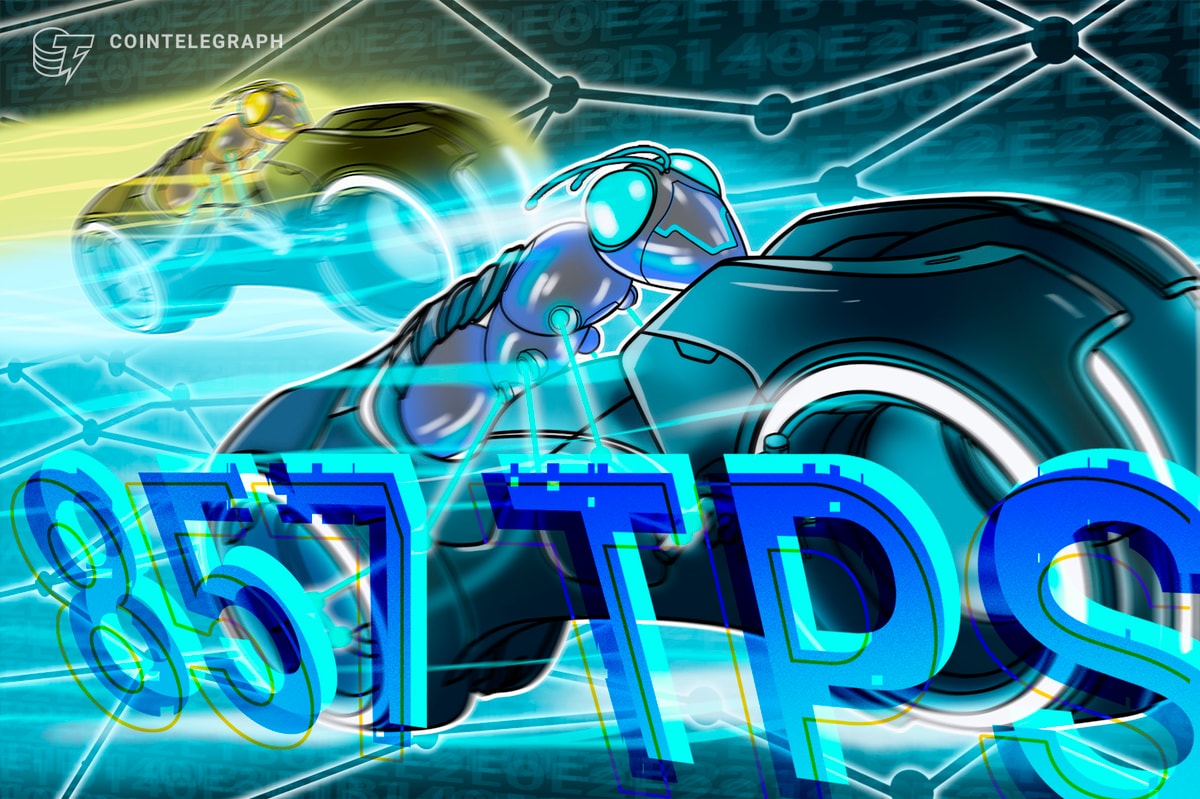On Oct. 29, Starknet, a layer-2 (L2) scaling solution on Ethereum, achieved a new milestone by reaching a peak of 857 transactions per second (TPS) in a controlled stress test.
The test averaged 127.5 TPS over a 24-hour period, showing the network’s potential to support high-demand blockchain applications, but also raising questions about long-term scalability.
Eli Ben-Sasson, CEO of StarkWare, told Cointelegraph that some networks attempt to get to “high TPS by compromising on values,” but this test showed Starknet could scale while maintaining integrity:
“This is not a narrow story of ‘success on Starknet.’ It’s an illustration that scaling on blockchain is taking big leaps forward, and that the rails are getting ready for mass use.”
Related: Starknet staking vote passes: New minting curve approved
Blockchain throughput breakthrough
Starknet’s stress test simulated a high-demand gaming environment and revealed fast transaction speeds and improved throughput compared with competitors like Coinbase’s Base network.
Ben-Sasson said that the “beauty” of the stress test was its ability to demonstrate Starknet’s “firepower” in a setting with which casual gamers are familiar.
“Gamers were able to easily participate in the test — without having to deal with the cumbersome process of blockchain tech,” he said.
According to L2Beat data, Starknet’s stress test max of 857 TPS outperformed Base’s 79.92 TPS max on Oct. 29 — achieving an almost 1,100% increase over the Coinbase network.
Chart depicting Starknet’s average TPS on Oct. 29 reaching 127.5 over a 24-hour period. Source: L2Beat
Related: Starknet minting vote will be gasless with new governance protocol
Real-world performance considerations
While Starknet’s test results are promising, the controlled environment may not fully reflect real-world scenarios.
Scaling up to support a larger user base can result — and previously has — in unpredictable challenges that include congestion and gas fee hikes, as seen on networks like Ethereum.
The Solana blockchain has been reported to handle up to 65,000 TPS in optimal conditions but has still faced outages caused by high traffic and network bugs.
Related: Starknet rolls out parallel execution in latest update
Starknet plans ahead
Ben-Sasson told Cointelegraph that this is “only the very start” of the networks’ bid to increase its TPS limits, adding that the team has more developments in the pipeline.
“We have many more developments in the pipeline that will enable Starknet’s TPS to reach new heights, including the introduction of the STWO prover in early 2025,” he said.
Magazine: Most DePIN projects barely even use blockchain: True or false?










